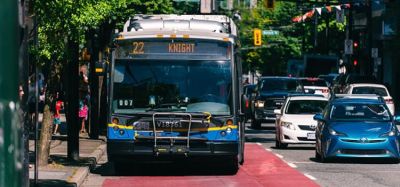Almost 70 per cent of the UK public do not know what a smart city is
- Like
- Digg
- Del
- Tumblr
- VKontakte
- Buffer
- Love This
- Odnoklassniki
- Meneame
- Blogger
- Amazon
- Yahoo Mail
- Gmail
- AOL
- Newsvine
- HackerNews
- Evernote
- MySpace
- Mail.ru
- Viadeo
- Line
- Comments
- Yummly
- SMS
- Viber
- Telegram
- Subscribe
- Skype
- Facebook Messenger
- Kakao
- LiveJournal
- Yammer
- Edgar
- Fintel
- Mix
- Instapaper
- Copy Link
Posted: 29 November 2018 | Intelligent Transport
A recent study has revealed a lack of knowledge, and of trust, regarding the concept of a smart city and its potential benefits.


According to new research conducted by ATG Access, almost 70 per cent of the UK public do not know what a smart city is, or the benefits it can bring.
Despite widespread global investment in the digital transformation of public spaces and the smart city concept, a study of 1,000 people found that consumer awareness in the UK is low because of a lack of information available. This could impact mass adoption in the UK.
The research found that over a quarter (26 per cent) of people find the prospect of smart cities “worrying” due to a lack of available information on the topic. The 18-24 age bracket harbour the least amount of worry, with just over a third (35 per cent) expressing trepidation, compared to 52 per cent in the 45-54 age bracket.
Almost a quarter expressed scepticism around the benefits smarter cities would provide, demonstrating a need for greater access to reliable educational resources on the topic to explain how smarter cities can save people time, money and provide peace of mind.
The research was conducted as part of ATG’s ‘Smart cities: Turning the dream into a reality’ report, which outlines the urbanisation problems that could be solved through the adoption of specific smart city concepts, such as traffic, crime and emergency incident response.
Gavin Hepburn, Managing Director at ATG Access, said: “As technologies such as artificial intelligence and the Internet of Things become more commonplace, governments and urban decision-makers are quickly realising the potential to incorporate this technology into creating safer, smarter cities. If implemented correctly, smart cities could improve living standards, reduce traffic, keep people safe and improve the environment.
“From our research, it is clear that educating the public on how smart cities can help solve many of the everyday issues inherent to urban life, such as safety risks, traffic congestion and a lack of security, will be key to solving these reservations.
“Internationally, Singapore is perhaps the most famous example of a smart city success story. Visitors to the city-state have often reported that they feel like they’re “living in the future” due to the widely-modernised public services. The key to this early success has been the high amount of senior buy-in, in the form of Singapore’s government-backed “Smart Nation” project. This government backing has legitimised the smart city concept on a global scale and provides a shining example for the UK to follow.”
Related topics
Infrastructure & Urban Planning
Related cities
United Kingdom
Related organisations
ATG Access
Related people
Gavin Hepburn







